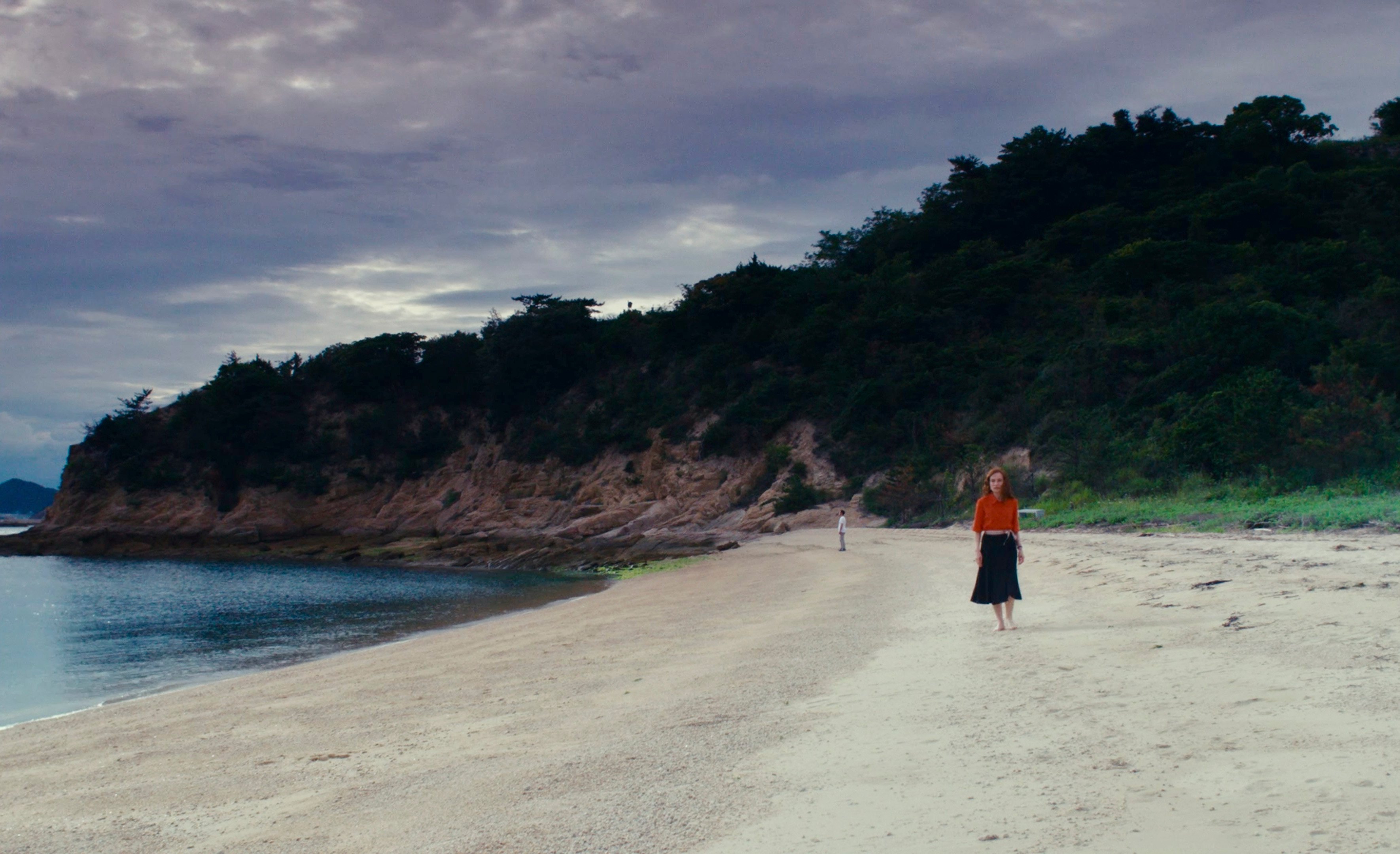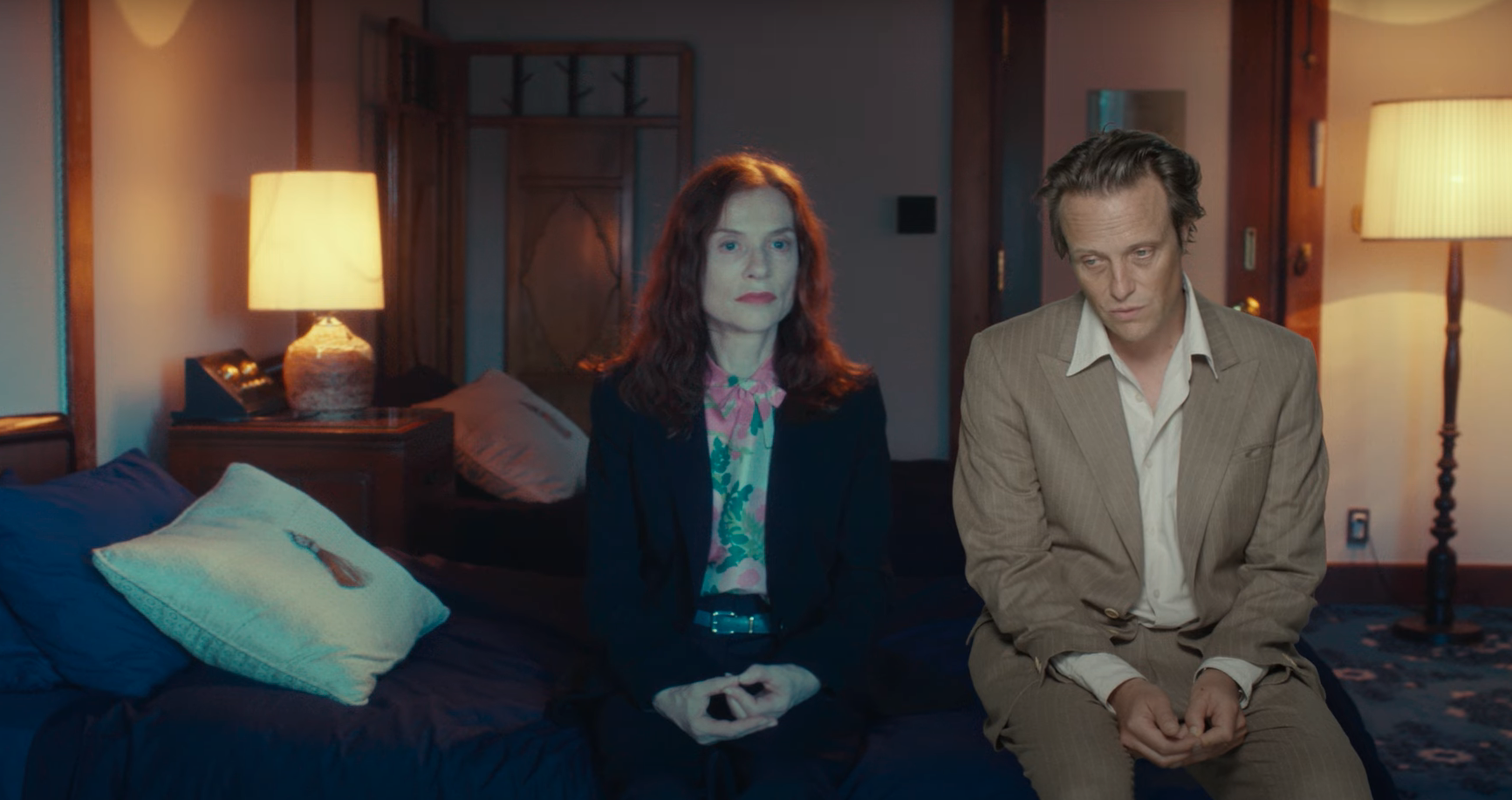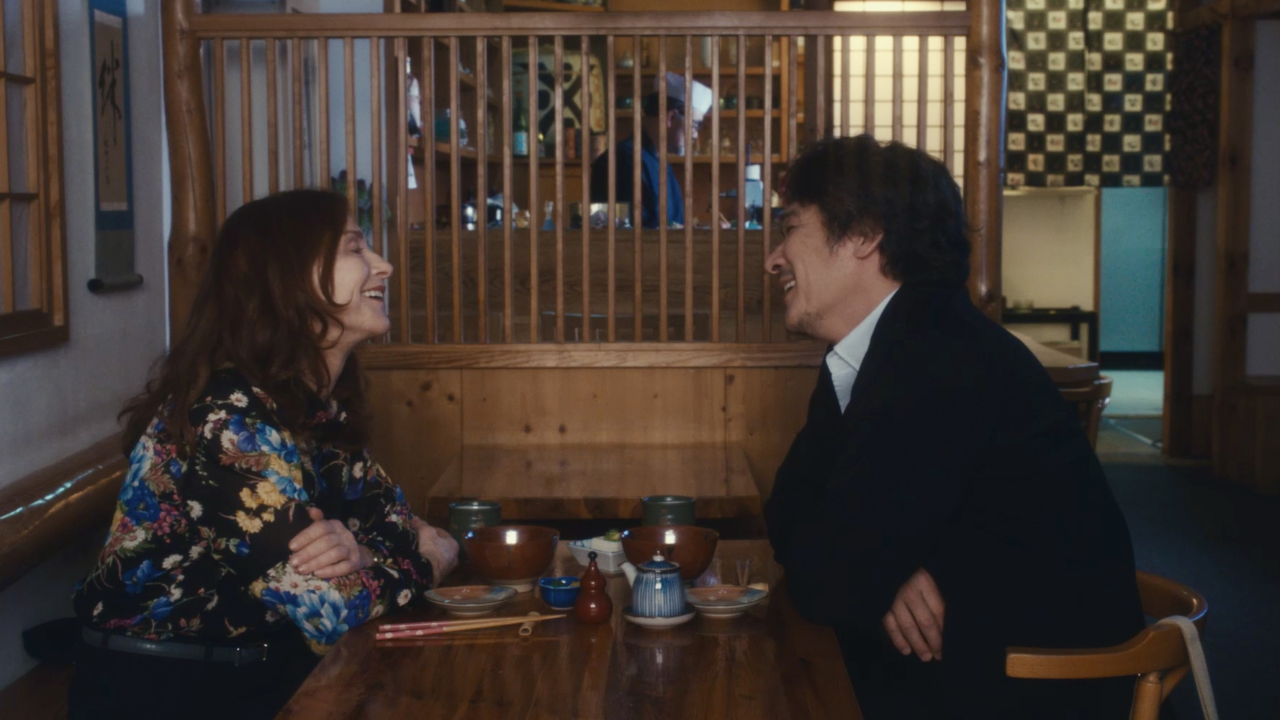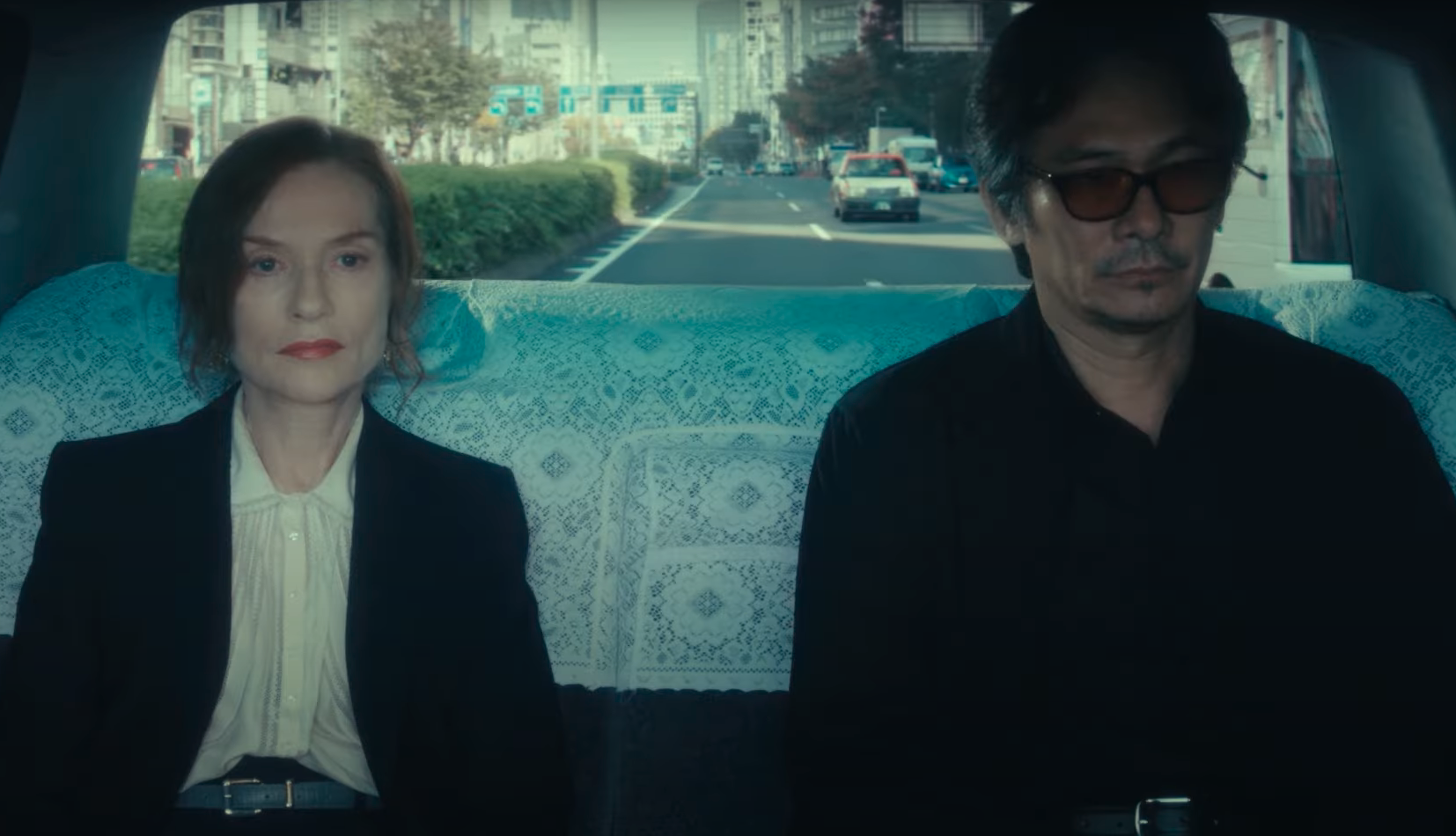Sidonia in JapanIsabelle Huppert and her “Lost in Translation”
Sweet bitterness or bitter sweetness, Isabelle Huppert brings her know-how of nuances and finesse, all in presence and with few words, in a beautiful Sidonia in Japan by Élise Girard. There we laugh, we are moved and we are neither frightened nor surprised by the presence of the ghost of Sidonie Perceval’s husband, the grieving writer who she embodies, initially reluctantly setting out to discover Japan.

Arriving in Osaka to give interviews for the reprint of her first book, she met her Japanese publisher, Kenzo Mizoguchi. Their cultural differences are funny and touching, and as they grow closer, she in mourning and he in an unhappy marriage, they will live “in a country that doesn’t exist.” All contemplation, delicacy and naturalness, the French actress radiates and nourishes Sidonia in Japan with a very beautiful emotion. She tells us.
What made you do it? Sidonia in Japan ?
Isabelle Huppert : it was the prospect of shooting with Élise Girard, whose first two films I loved, Belleville-Tokyo AND Funny birds, in which she plays my daughter Lolita Chammah. I saw this first and I found that you filmed my daughter very well and her very original relationship with the actor Jean Sorel.
It is a film that revolves around the same themes as Sidonia in Japan, since literature is very present there. In Funny birds Lolita is a young bookseller and apprentice writer, and in this new film I am an experienced writer returning to the time when she herself was a budding writer, as I will be coming to Japan for the release of my first book.
This is indeed the starting point, but something else is quickly taking shape.
Isabelle Huppert : Gradually we understand that she is a woman in mourning. This is the story she tells her Japanese publisher about her, whom she meets for the first time. She never wanted to admit that her husband was dead, so he returns to her, regularly, in the guise of a very alive and very vivid ghost. Too much, in a way.

I mean, too alive?
Isabelle Huppert : If it were morbid, evanescent, we would say it was already disappearing. Which will happen only towards the end of the film. But she is so lively that it prevents her from living 100%, from living completely. There is also this discovery of Japan, the fact of going far away, perhaps with more awakened senses and curiosity. Being in the unknown, in the strangeness. This awakening of curiosity contributes to a new vitality.
Did Élise Girard tell you her feelings about this discovery for your character?
Isabelle Huppert : He didn’t need to tell me about it. The simple fact of wanting to make a film there, of writing this story, already said enough about his attachment. I didn’t need to look much further. He told me that he had spent a stay there, and that for her it had been an important moment, this discovery of the country. I myself went there several times, but I didn’t have the same connection.
Japan is a country, perhaps more than any other, very “mental”. It is a country that makes you think. The gaze is challenged, but so is the mind. We want to think about what it means to be alive. There is an intensity, a very strong, very active thought.
Is this discovery, which represents a phase shift, resolved when Sidonie meets Kenzo, despite their differences?
Isabelle Huppert : Yes, and that’s the beauty of it. Obviously she gets along better with her dead husband than with this man. It’s not just the language, he also has to relearn the language of love. It is this language that will ultimately make them very united. Even if they don’t speak the same language, it doesn’t matter. It is a story of rebirth and the idea that any rebirth is possible.

After all, he wasn’t experiencing that immobility so badly. I don’t know what to call it, maybe depression, you can call it many different things. It’s just that life had stopped, there was no more writing. But she remained a curiosity, awakened by contact with Japan and this man.
This role of Sidonie contrasts with a whole gallery of great roles that have broadened the definition of ambiguity, an often harsh and difficult ambiguity. What does such a role entail? A loophole?
Isabelle Huppert : “Escaping” doesn’t suit me, because it would mean I feel trapped, which isn’t the case at all. It’s a variation, a different one, and it’s cute. Maybe this is given to me less often. It’s quite difficult to make, to write, these films where things are particularly quiet, where there’s no refuge behind ambiguity or more mixed feelings.
There are no major adventures in this film, or they are all internal. There is something extremely beautiful, something very mental, and it is undoubtedly rarer to find this kind of writing and this role to play. In this film, a blink of an eye is an accident.
I think of the scenes in the taxi, which are very beautiful, very silent scenes, with a very strong tension, where the silences are audible and eloquent. While there are silences. I have rarely seen car scenes shot like this.
Sidonia in Japan is an international production set in Japan. If we look at your international films, we seem to lean more towards the East than the West.
Isabelle Huppert : It’s absolutely true. I’ve worked a lot in the United States, but in all cases it goes more towards Asia than towards South America, for example. I can’t explain myself any further than that, but it’s true that I shot in Cambodia, the Philippines, Korea and Japan. Also in Hungary and in the countries of the former Yugoslavia.
Are these the cinemas that attract you the most?
Isabelle Huppert : No, it just happened that way. If Karim Aïnouz, to name just one, a Brazilian director, living in Berlin, asked me to go and shoot a film in Latin America, I would be extremely happy. I think about him because I really like what he does.
Source: Cine Serie
Ray Ortiz is a journalist at Gossipify, known for his coverage of trending news and current events. He is committed to providing readers with accurate and unbiased reporting, and is respected for his ability to keep readers informed on the latest news and issues.









